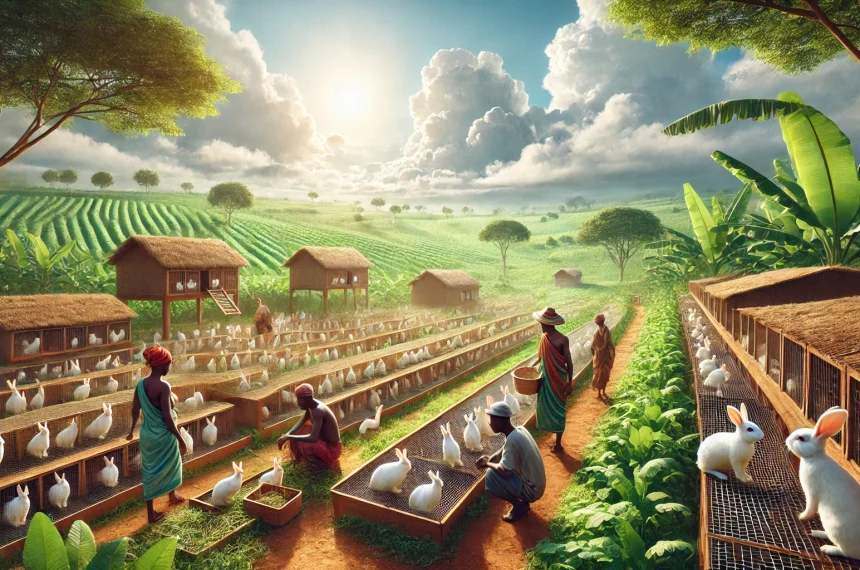As the demand for sustainable and healthy food sources continues to grow, rabbit meat is quickly gaining recognition across Africa as a viable and nutritious protein option. Known for its high protein content and low environmental impact, rabbit meat offers a unique solution to some of the pressing food security and health challenges on the continent. In this blog post, we explore why rabbit meat is on the rise, its nutritional benefits, and the growing market opportunities for local farmers.
Nutritional Benefits of Rabbit Meat
Rabbit meat is often called a “super meat” for good reason. It is an excellent source of high-quality protein, providing all the essential amino acids needed by the human body. One of the standout qualities of rabbit meat is its low fat content—it is significantly leaner compared to beef, lamb, and pork. This makes it an attractive option for health-conscious consumers looking to lower their fat intake without compromising on nutrition.
Rabbit meat is also rich in important vitamins and minerals. It provides high levels of vitamin B12, which is essential for red blood cell production and nerve function. In addition, it is a great source of phosphorus, potassium, and selenium—minerals that play vital roles in bone health, muscle function, and immune support. With its low cholesterol levels, rabbit meat is also ideal for individuals looking to maintain cardiovascular health.
Environmental Sustainability
One of the key reasons for the rise of rabbit farming in Africa is its environmental sustainability. Rabbits are highly efficient converters of feed into meat, requiring less food and water compared to other livestock. This efficiency means that rabbit farming has a much smaller environmental footprint, making it a more sustainable option in regions facing resource constraints.
In addition, rabbits reproduce rapidly, with a doe capable of producing up to 40 offspring in a year. This high reproductive rate means that farmers can quickly scale up production to meet market demand without placing undue pressure on the environment. The low resource requirements and rapid growth of rabbits make them an ideal livestock choice for smallholder farmers looking to contribute to food security in their communities.
Market Trends and Opportunities
The demand for rabbit meat is steadily growing across Africa, driven by its nutritional benefits and increasing consumer awareness of healthy eating. In urban areas, more restaurants are including rabbit dishes on their menus, catering to health-conscious customers and food enthusiasts looking for something different. Rabbit meat’s reputation as a lean, tender, and versatile protein source has also made it popular in high-end culinary settings.
Local farmers have a significant opportunity to tap into this growing market. Rabbit meat is well-suited for both domestic consumption and niche export markets. Farmers who can brand their rabbit products as organic or free-range have an added advantage, as these labels appeal to a growing segment of health-focused consumers. There is also potential to explore value-added products, such as rabbit sausages or cured rabbit meat, which can command higher prices and appeal to a broader customer base.
The Role of CARAPRO
CARAPRO plays an important role in promoting rabbit meat as a sustainable protein source across Africa. By connecting rabbit farmers with market opportunities, providing training on best practices, and facilitating knowledge sharing, CARAPRO helps farmers take advantage of the growing demand for rabbit meat. CARAPRO also works to educate consumers about the nutritional benefits of rabbit meat, helping to create a broader market for this healthy and sustainable protein.
Conclusion
Rabbit meat is on the rise in Africa, and for good reason. Its high nutritional value, low environmental impact, and growing popularity make it an ideal protein source for a continent that is striving for both food security and sustainability. For local farmers, the increasing demand for rabbit meat presents an exciting opportunity to build a profitable and sustainable business. With the support of organizations like CARAPRO, rabbit farming has the potential to become a key contributor to Africa’s agricultural landscape and a cornerstone of sustainable food production.


Leave a Reply